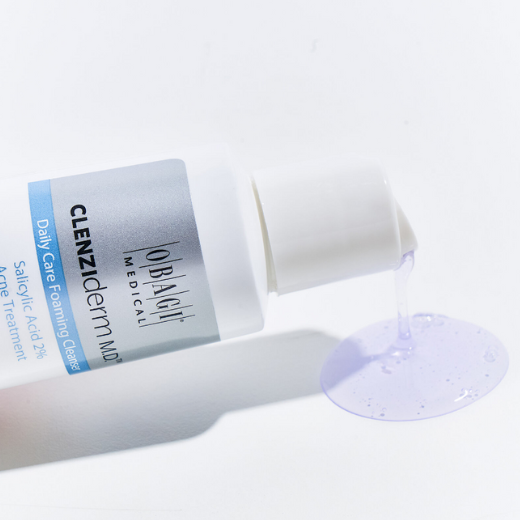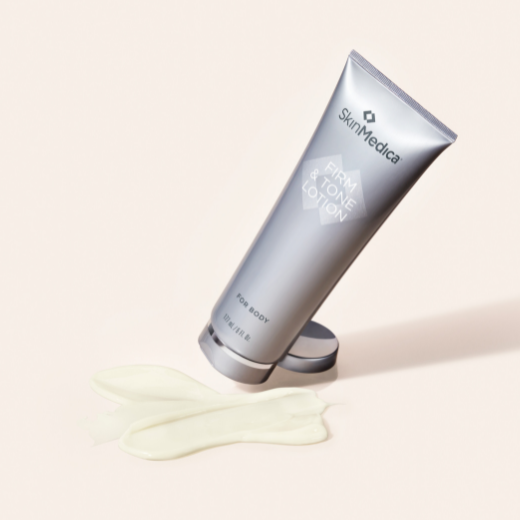Postpartum Skin: Top Tips for New Moms
Posted by Nikki Wisher on May 23rd 2023
When you welcome a new baby to your family, everything changes…and I do mean everything. Including your skin. Your hormones go through an epic journey not only during pregnancy but after you give birth too, and those hormones (among other changes in your body) affect your skin. You deserve to feel and look your best while you get to know your beautiful baby, so let’s talk about some ways to help your postpartum skin.
Try Products with Azelaic Acid for Melasma
During pregnancy, it’s common to develop something called melasma, which is also nicknamed the “pregnancy mask.” It’s a type of excess pigment on your face that happens due to the hormonal changes of pregnancy.
Melasma typically starts to fade after you give birth, but it can take a while and you may want to speed it along. If so, check out skin care products with azelaic acid. Why azelaic acid in particular? If you’re breastfeeding, there are certain skin care ingredients you should avoid. That includes two of the most common ingredients for pigment control: tretinoin and hydroquinone. Azelaic acid, on the other hand, can help to even out your pigmentation in a breastfeeding-safe way.
Use Benzoyl Peroxide to Manage Hormonal Acne
Acne is one of those changes and issues that no one tells anyone to expect when they get pregnant, but it’s very common. When you’re pregnant, your body’s levels of the hormone progesterone are through the roof, and this often causes hormonal acne.
While this hormonal acne tends to start correcting itself after you give birth, your progesterone levels will stay higher than normal while you’re breastfeeding, so you’re likely to continue having acne during that time. The gold standard for treating hormonal acne is benzoyl peroxide, so a benzoyl peroxide cleanser can work wonders for those postpartum pimples.
Pay Special Attention to Moisturizing
If you’re someone who typically has dry skin, I have unfortunate news: that won’t get better while you’re postpartum. Not only can hormonal changes after giving birth make your skin dry, but breastfeeding requires a lot of water from your body. This pulls moisture out of other areas of your body, making you more prone to dehydration and making your skin dry.
You can keep this at bay by, of course, drinking plenty of water. But you should also be vigilant about applying facial moisturizer twice daily to reduce the amount of hydration you lose through your skin.
Be Proactive About Anti-Aging
After you give birth, you’ll go through a time when your body’s estrogen levels drop. This can have a lot of effects on your body, but unfortunately, it also doesn’t do any favors for your skin. The low levels of estrogen can reduce your natural production of collagen, elastin, and hyaluronic acid – all of which contribute to making your skin firm, smooth, and youthful. Tldr: your skin may age more quickly during your postpartum time.
To counteract this, try incorporating skin care products that stimulate collagen production or elastin production. You can help your skin look younger and also reduce moisture loss by using a hyaluronic acid moisturizer.
Consider a Firming Body Lotion
I’ve mostly been focusing on facial skin until this point, but after you give birth, there’s one skin issue that is practically universal: lax skin on your belly. Your skin has the amazing ability to stretch as your baby grows during your pregnancy, but it doesn’t bounce back right away and it often doesn’t bounce back 100% either. As natural as this is, it’s a major source of self-consciousness.
So what can you do about it? The truth is that time is the largest factor in your abdominal skin firming up again. There are some ways you can give it a helping hand, though. A firming and toning body lotion can give your skin the tools and ingredients it needs to aid that process.
A Universal Rule: Get Guidance from Your Dermatologist
During your postpartum stage, there may be many changes you want to make to your skin care routine to adapt to the new and changing issues you’re seeing with your skin. It’s important to remember, though, that when you’re breastfeeding, anything that is absorbed into your body could affect your breastmilk, so there are certain ingredients you should avoid while breastfeeding.
Take the time to either verify that every item in your routine is breastfeeding-friendly. Or, better yet, ask your dermatologist about the products you’re using and if there are any changes they would recommend.
Caring for Your Skin After Giving Birth
When you’re in that one-of-a-kind stage of life when you’re getting to know your new baby, adjusting to life with a newborn, and recovering from giving birth, your skin may not be your top priority. Still, every new parent deserves to feel confident and strong, and something as simple as caring for your skin can help you feel more like yourself. The tips above can help you create that balance between dedicating your energy to your child and still caring for yourself along the way.




